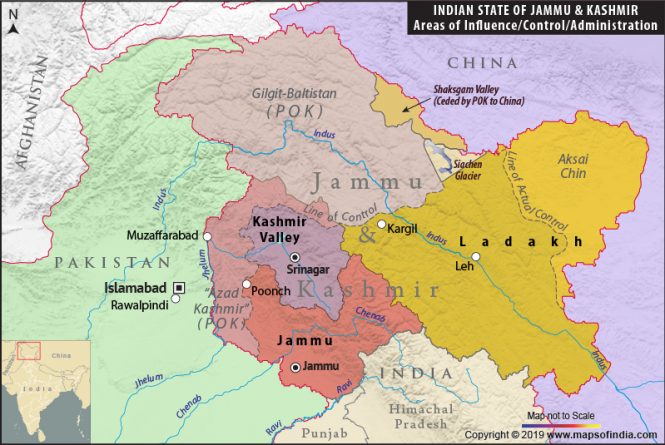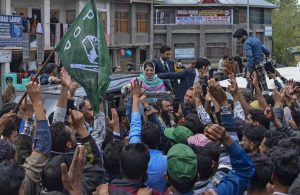
Article 370 Abrogation: A Tapestry of Transition in Jammu, Kashmir, and Ladakh
If in Jammu, it showed up in insecurity over jobs, Kashmir voters talked of “loss of identity’, while Ladakh sought protection under Sixth Schedule to make up for lost special status
As Jammu and Kashmir plus Ladakh wrap up voting for the Lok Sabha elections on Saturday – the first significant polls in the state since the abrogation of Article 370 – the three regions saw distinct polls issues. But one was common – insecurity over jobs and land, in the wake of the scrapping of the special status of the erstwhile state.
In the Valley, voters spoke about the loss of J&K’s “identity” and expressed concern over “changed demographics”. For Jammu, where there is more support for the Centre’s unilateral decision on Article 370, issues such as the jobs promised following the move not frutifying, apart from the inaccessibility of the incumbent BJP MPs, were the main issues. For Ladakh too, the main poll subject flowed from the changes following the removal of Article 370, with voters seeking the autonomy offered by the Sixth Schedule of the Constitution.
In Jammu, the Congress – the main opponent of the BJP in the province’s two Lok Sabha seats of Jammu and Udhampur-Doda – questioned the Centre over job and land security for local residents, now that the protections offered by Article 370 no longer exist. Union Minister of State, PMO, Jitendra Singh, who courtesy his portfolio is a prominent presence at the Centre, is one of the contenders here, facing a tough fight in Udhampur-Doda against BJP-turned-Congress leader Choudhary Lal Singh.
In Kashmir, the BJP surprisingly kept out after Prime Minister Narendra Modi dropped in for his first public meeting post-Article 370 abrogation, suggesting an early campaign launch for the party. Sources said the BJP did not want to take the risk of a likely loss in all of the Valley’s three seats – Srinagar, Baramulla and Anantnag-Rajouri – and the impact it could have on its Article 370 plank in the Assembly elections to be held in J&K soon.
Smaller parties in the Valley race, however, continued to be dogged by accusations of being proxies of the BJP – particularly the Apni Party and People’s Conference which, in turn, reached an “understanding” between themselves.
With the Congress leaving the field for INDIA ally National Conference, the PDP got isolated and has the most riding on the results now. Top leaders of both the NC and PDP are in the race themselves – NC vice-president Omar Abdullah from Baramulla, and PDP chief Mehbooba Mufti from Anantnag-Rajouri. In Srinagar, it is a contest between two youth icons – the NC’s Aga Ruhullah Mehdi and PDP youth president Waheed ur Rehman Para.
Not surprisingly, for all parties, Article 370 and its impact remained the main talking point, with the NC and PDP arguing that while development was important, their focus should be on “political rights” first.
With both polling in Srinagar and Baramulla seeing new highs, different sides interpreted it differently, including the BJP. While the Valley parties called it a vote against the Centre, saying people had grabbed the first opportunity to raise their voice, the BJP said the enthusiastic participation of the voters showed that J&K had turned a corner, to a post-Article 370 era.
Anantnag-Rajouri, which votes on Saturday, is expected to show the spillover effect. Besides, as a parliamentary constituency in Kashmir includes regions from Jammu for the first time, the extent of the turnout in the respective areas could determine Mufti’s fortunes.
The political calculations in the seat have been upset by the BJP’s outreach to the Paharis, who are in large numbers on the Jammu side.
Ladakh, with a lone parliamentary seat, may not have garnered as much attention in the identity debate, but the extent to which it has been brewing was evident in the polls. The demand for Sixth Schedule to safeguard their land and job rights remained almost the only issue, though the Kargil-Ladakh divide flared up again over the INDIA candidate. Source
